SUMMARY
This is AI generated summarization, which may have errors. For context, always refer to the full article.
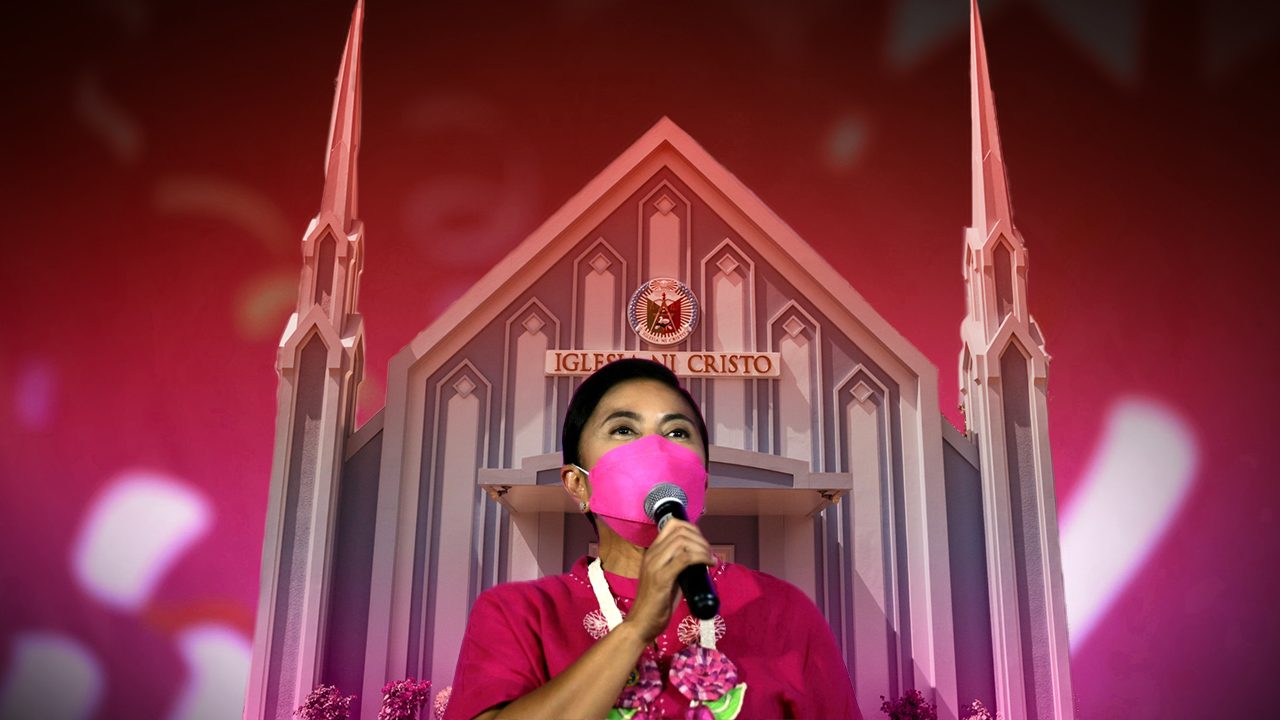
MANILA, Philippines – Bella, 21, is a devout Iglesia ni Cristo youth member in Cavite. Born and raised in an INC household, she attends worship services twice a week, and even once joined their choir and became a church secretary.
Despite her faithfulness to the INC, Bella said she was “disappointed” but not surprised when the church endorsed Ferdinand Marcos Jr. and Sara Duterte on Tuesday evening, May 3. Remaining firm in her beliefs, she decided to still vote for Marcos’ closest rival, Leni Robredo, and her running mate Kiko Pangilinan.
“Kay Leni ang boto ko dahil siya ang may tama at tunay na credentials na kailangan sa pagiging isang pangulo,” Bella told Rappler. (My vote is for Leni because she is the one who has the true and real credentials needed to become a president.)
There are other INC members like Bella who plan to defy their church’s bloc voting practice, having grown more critical of such teaching.
While they are also “handog” – dedicated by their parents to the INC since birth – Jep, 22, and Rick, 20, do not go to church as regularly as Bella. As for Rick, there even came a point when his family had to turn off their home’s Wi-Fi connection to force him to join church services.
But, like Bella, Jep and Rick (not their real names) will also vote for Robredo.
So will defiant INC members who immediately pushed back minutes after the INC announced its support for Marcos and Duterte on Tuesday. The hashtag #KakampINC, in particular, rose to become the top trending topic on Twitter that evening. Over 48,000 Twitter users have used this hashtag – and many of them identified as INC members.
“KakampINC” is a play on the word “kakampink,” which in turn is a combination of “kakampi” (ally) and pink – Robredo’s campaign color.
In a 2.6-million-strong church known for obedience and discipline, the cracks are showing.
Why the INC votes as a bloc
The INC believes bloc voting reflects the Bible’s teachings.
In particular, the church refers to I Corinthians 1:10, where Paul tells believers, “Let there be no divisions among you but be perfectly united in one mind and in one thought.” Another Bible verse they use as basis is Romans 15:6, which states, “That you may with one mind and one mouth glorify God, even the Father of our Lord Jesus Christ.”
In a 2016 interview with Rappler, INC spokesperson Edwil Zabala said members of INC must have unity in rendering judgment as an act of obedience to God.
Questions had already been raised in previous elections, however, on whether INC members comply with bloc voting. In the 2016 elections, the Social Weather Stations (SWS) found that almost 23% of INC voters did not vote for Rodrigo Duterte, whom the church endorsed.
The first time she voted in 2019, Bella followed bloc voting, but confessed she felt she was wrong for doing so. “I really did not even know who those candidates were,” she said.
Jep said in a mix of English and Filipino, “It’s kind of off-putting, especially when you look at our laws, and then you look at voting as a constitutional right.”
In Rick’s case, he started questioning the bloc voting practice when he realized how the church has a history of endorsing candidates whose track records contradict the church’s teachings.
Bella shared the same observations. “I have also seen some candidates endorsed in the past who have graft and other charges, and that made me think why and what really are the criteria for deciding who we should vote for as one,” she said.
In the 2016 elections, the INC endorsed Duterte for president and Marcos for vice president, even if both had a controversial past. Similarly, in the 2019 midterm elections, the INC supported senatorial aspirants Bong Revilla and Jinggoy Estrada, even if both had been accused of plunder.
“I noticed that the candidates they endorsed have records of corruption. Then I realized we are being stripped of our right to choose,” Rick said in Filipino.
Unlike Jep’s church in Makati that only “highly encourages” its members to follow its practices, Rick said that his INC locale in Pampanga is stricter in enforcing its doctrines.
The secrecy of the ballot, however, provides comfort for defiant INC members like Jep. “It’s impossible to track. What? Are they going to call up the local voting center and ask?” Jep said.
In addition, both have not yet witnessed a member being expelled from the church for not following the bloc vote.
“I feel that this is right. We should not be following such a practice that has a negative impact on the country,” Rick said in Filipino.
‘Unity’
Rick stressed that in INC unity is the utmost merit that the church forcefully implements in all activities the members do.
The culture of just following and not questioning – an absolute, committed custom of agreeing to the Lord through their ministers – fortifies this “unity” among those who make up the INC.
“The only assurance that the church gives us about why we have to give our trust in church officials is because they are the appointees of God,” he said in mixed Filipino and English.
This custom led Jep and Rick to start questioning and rejecting some of INC’s doctrines.
“When a passage reads like, ‘We must practice unity,’ that’s up to interpretation for so many things. That is a vague statement, and sometimes there are interpretations of the church that I don’t necessarily agree with,” Jep said.
“Honestly, I just want to praise God in my way, without getting held back by any shackles,” Rick added.
In an online press conference with journalism students at the University of Santo Tomas, sociologist of religion Jayeel Cornelio said young people who grew up in their respective churches experience “reflexive spirituality.” This is when they start becoming critical of the doctrines they receive because of the beliefs they subscribe to.
“A person, especially young people, realizes that, ‘Wait a minute, I don’t actually agree with what that priest said. I don’t actually agree with what that pastor said.’ This can be an example of reflexive spirituality,” Cornelio explained.
In an interview with ANC on Wednesday, May 4, Cornelio was asked about INC members on social media who oppose their church’s endorsement.
“There might be a generational dimension to this. Most of the time, the people who are willing to contest, to challenge, the leadership tend to be young people,” Cornelio said. “But I would like to also ask us to be cautious a little bit about this, because I feel that this is really the minority.”
‘Strictness’ in the INC
Besides unity, “strictness” – a trait that the religion is known for – also lies within the core of INC.
In an interview with Rappler, Zabala said obeying is a significant feature of the INC culture even if “it goes against personal wishes,” as he said “it is a requirement of Christ.”
Rick directly experienced the Christian church’s “strictness” through his religious household. In fact, throughout our interview, Rick spoke in a meager voice to not be heard by his family members. “I will definitely be scolded [if they heard me],” he said.
Describing his parents as INC members, he enumerated: “Devout. Fully committed. The church should be the number one priority. Diligent. Religion over family.”
Rick’s clan on both parents’ sides strictly followed the bloc voting practice. Their roots were all INC members, except for his father’s lineage, who were former Catholics.
While his family does not often engage in political conversations in their home, he said his father had supported Marcos even before the INC endorsed him. Had the INC endorsed Robredo, however, his father said their family would vote for her. “That is how absolute the words of the INC leader are for them,” Rick said.

Rick said he disclosed to his mother, whom he is closer to, that he would not participate in bloc voting in the upcoming elections. His mother replied, “Stop that, or you will be punished accordingly.”
The INC youth member described his father as “close-minded.” He shared that he got reprimanded for sharing informative and fact-checked posts about the Marcoses on Facebook.
“I find everything too suffocating,” Rick said in Filipino.
This, however, was not the case for Jep. Though they also came from generational INC roots, Jep considers his family members, particularly his grandmother, as more “critical” of the church’s bloc voting practice.
“Like my lola, she’s very critical sometimes, if not most of the time, with what goes on within the church,” Jep said.
When asked if this means his family would not follow bloc voting in the upcoming elections, Jep did not give a categorical answer. Instead, he stressed that within the family, there is “no pressure” to comply with the practice.
“There are some elections that they just don’t care too much about. But if [the church’s choice of candidates] is extremely against or counter-intuitive to what they want, or it’s like they just don’t really like whom [the church] chose, they will vote for someone else,” Jep explained.
Jep said that his grandmother “definitely voted” for Leni Robredo for vice president in the 2016 elections. Based on his observation, she would do the same this upcoming election – no matter who the INC endorsed.
“My lola? Never going to vote for BBM any time for life – never, never, going to happen. She’d rather vote for Manny Pacquiao than vote for Bongbong Marcos,” he added.
Jep also shared that his parents used to be stricter in enforcing the church’s practices when he was a kid, but became more lenient as he grew older.
According to Cornelio, this difference between an individual’s beliefs and how religion is practiced in one’s church despite being in the same religious group shows how religion is “not monolithic.”
Both Rick and Jep currently share the desire to leave their religion, but are unable to due to their ties with their families.
“Well, I’m still living under my dad’s roof,” Jep said. “It’s kind of hard to just leave. And you know? I still live in the same house with people who still go to church.”
Does bloc voting work?
Over the years, most of the presidential candidates who were backed by the INC, the third largest religious group in the Philippines, won the elections.
Out of the 16 presidential elections from 1935 to 2016, 11 endorsements by INC were successful.
The ties of the Marcoses and INC can be traced back to 1965, when the religious organization supported the bid of the late dictator Ferdinand Marcos. Amid the widespread human rights violation and corruption of the Marcos regime, the INC’s support for him did not falter, as it consistently backed his reelection for the presidency.
Those endorsed by the INC but failed to win the presidential race were Jose Avelino, who lost to Elpidio Quirino in 1949, and Eduardo “Danding” Cojuangco Jr., who lost to Fidel V. Ramos in 1992.
The INC’s endorsement of the late President Ferdinand Marcos in his bid for reelection in the 1986 snap election was also unsuccessful after Corazon Aquino toppled the dictator amid reports of election fraud committed by Marcos.
For the 1953 and 1957 polls, there is no information on whom the INC supported.
Despite the seemingly solid vote from the members of the century-old church, Mahar Mangahas, president of the Social Weather Stations (SWS), said that the INC vote is not 100%, at least for the 2016 presidential elections.
He said in an Inquirer article that INC’s vote is three-fourths solid. Based on the 2016 exit poll conducted by SWS, 77.2% of INC members said they voted for Duterte.
Mangahas noted, however, that “when fighting for every fraction of a point, politicians have to take the INC into account.”
Another school of thought is that the INC does not “create” election winners, but rather places its bets on candidates who are already leading in surveys.
In an Inquirer commentary titled “The INC Endorsement Myth,” public opinion researcher Oscar Lagman Jr. noted how the INC usually announces its endorsements “about a week before election day, when the rankings of the candidates in the polls shall have stabilized.”
“It endorses only those candidates that the polls show to be likely winners. That practice has given the less discerning traditional politicians the impression that INC’s bloc vote is the deciding factor in the success of a candidate’s quest for an elective post,” Lagman wrote.
Regardless of the INC’s political influence, the battle begins in each member’s conscience.
Bella admitted she fears the repercussions for INC members who defy the bloc-voting practice, especially those who expressed them by using the hashtag #KakampINC. Are they now at risk of being expelled?
Bella could now only draw strength from her sense of duty.
“I am a child of God, I serve and I believe in Him, but I am also a citizen of this country who has a responsibility to vote for who I think is the most suitable for the position,” said Bella. “I will never settle for less than what our country deserves.” – Rappler.com
James Patrick Cruz, Patricia Julianne Escaño, and Isabell Andrea Pine are graduating journalism students from the University of Santo Tomas. This article is an updated version of their class project for JRN31727, a religion reporting class under Rappler news editor Paterno Esmaquel II.
Add a comment
How does this make you feel?


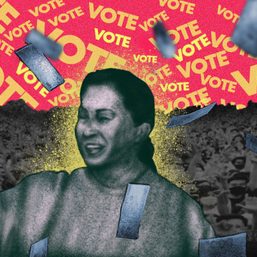
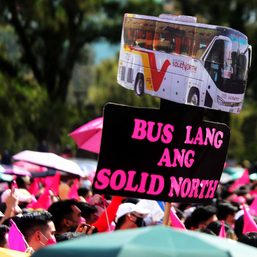
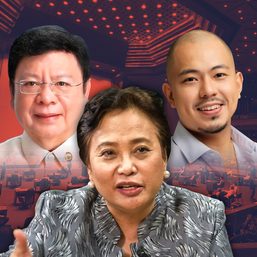
![[Newspoint] Improbable vote](https://www.rappler.com/tachyon/2023/03/Newspoint-improbable-vote-March-24-2023.jpg?resize=257%2C257&crop=339px%2C0px%2C720px%2C720px)
![[Newspoint] 19 million reasons](https://www.rappler.com/tachyon/2022/12/Newspoint-19-million-reasons-December-31-2022.jpg?resize=257%2C257&crop=181px%2C0px%2C900px%2C900px)
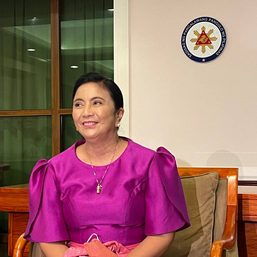
![[The Slingshot] Can the Quiboloy sect be outlawed?](https://www.rappler.com/tachyon/2024/03/Can-quiboloy-be-outlawed-March-26-2024.jpg?resize=257%2C257&crop=242px%2C0px%2C720px%2C720px)
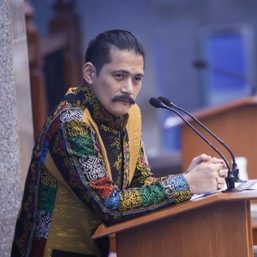
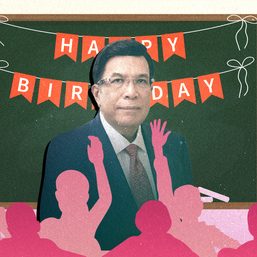
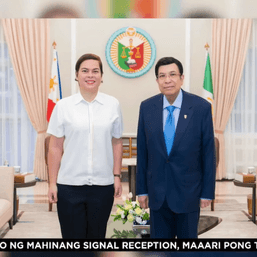
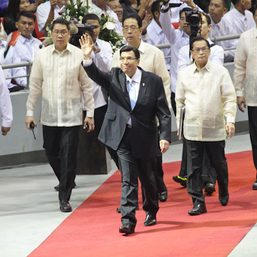
![[OPINION] Sara Duterte: Will she do a Binay or a Robredo?](https://www.rappler.com/tachyon/2024/03/tl-sara-duterte-will-do-binay-or-robredo-March-15-2024.jpg?resize=257%2C257&crop_strategy=attention)
![[New School] Tama na kayo](https://www.rappler.com/tachyon/2024/02/new-school-tama-na-kayo-feb-6-2024.jpg?resize=257%2C257&crop=290px%2C0px%2C720px%2C720px)

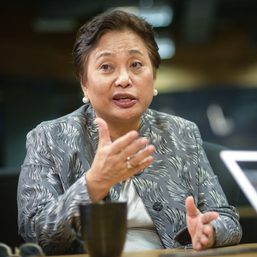

![[Judgment Call] Is Rappler an ‘enabler’ of Catholic ‘copycats’?](https://www.rappler.com/tachyon/2024/04/catholics-copycats-april-18-2024.jpg?resize=257%2C257&crop=418px%2C0px%2C1080px%2C1080px)
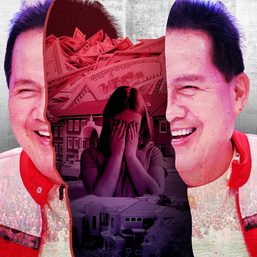

![[Rappler’s Best] The elusive big fish – and big fishers](https://www.rappler.com/tachyon/2024/04/The-elusive-big-fish-%E2%80%93-and-big-fishers.jpg?resize=257%2C257&crop=220px%2C0px%2C720px%2C720px)
There are no comments yet. Add your comment to start the conversation.